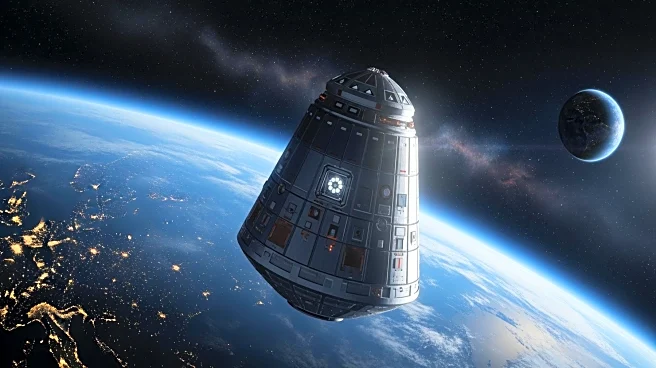What's Happening?
The International Space Station (ISS), which has been operational for 25 years, is scheduled to be retired at the end of the decade. This decision marks the end of an era in international space collaboration
and the beginning of a new space race to develop its successor. The ISS has been a hub for scientific research and international cooperation, hosting astronauts from various countries. As its retirement approaches, discussions are underway regarding the next steps in space station development, with several countries and private companies vying to lead the charge.
Why It's Important?
The retirement of the ISS is significant as it represents a shift in the landscape of space exploration and international collaboration. The development of a new space station could redefine partnerships and technological advancements in space research. Countries and private entities involved in the new space race stand to gain influence and leadership in the next phase of space exploration. The transition also presents opportunities for innovation in space technology and the potential for new scientific discoveries.
What's Next?
As the ISS approaches retirement, stakeholders are exploring options for its replacement. This includes potential collaborations between countries and private companies to develop a new space station. The outcome of these discussions will shape the future of space exploration and international cooperation. Key decisions regarding funding, design, and operational management will need to be made to ensure the successful transition to a new space station.









